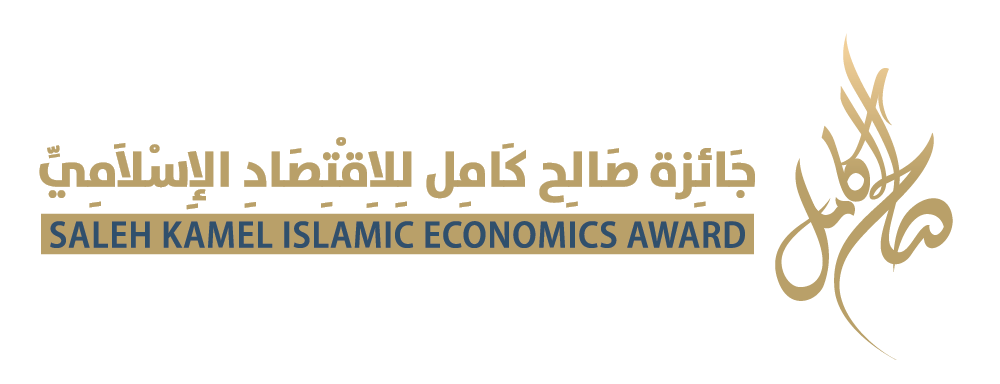The Board of Trustees of the Saleh Kamel Islamic Economics Award approved the themes of the first edition to reflect the most pressing and important issues in the contemporary Islamic economics field, and to encourage researchers to present original and innovative visions that respond to the transformations and challenges of the era. The themes’ selection was based on the combination between scientific depth and reality, while preserving the epistemological and legal identity of Islamic economics.
The award’s themes for the first edition are:
“The Future of Islamic Finance Industry in the Digital Age: Challenges, Risks & Aspirations -Analytical and Futuristic Study Till 2050”
Radical changes are reshaping the global financial ecosystem, propelled by rapid advancements in technology—particularly in artificial intelligence, blockchain, and financial technologies (FinTech). In this evolving landscape, the Islamic finance industry faces significant challenges regarding its capacity to adapt. Key among these are the development of innovative Shariah-compliant financial instruments, the enhancement of Shariah governance frameworks, and the alignment of financial innovation with both regulatory mandates and Shariah principles.
This edition seeks to promote original research and forward-looking studies that explore the future trajectory of the Islamic finance industry in light of ongoing transformations. It aims to highlight opportunities for innovation and development, assess potential risks, and present strategic outlooks extending to the year 2050. The scope encompasses technical, regulatory, Shariah, social, and environmental dimensions tied to the digital transformation of Islamic finance.
Suggested Writing Topics (non-exhaustive):
- The evolution of Islamic fintech and the emerging challenges ahead.
- The development of the Islamic financial engineering and money market instruments in the era of digital transformation.
- The impact of Islamic financial innovations on advancing social justice and sustainability: a descriptive or quantitative analytical approach.
- The future of Shariah governance in the context of evolving financial products: navigating the balance between innovation and adherence to Shariah principles.
- The prospects for innovation in the Islamic economy beyond 2030, including green finance, smart contracts, and technology-enabled Shariah-compliant financial assets.
These topics are intended as guiding examples; however, all submissions should align with the overarching theme of the first edition. Proposals offering new insights and diverse approaches are welcomed, provided they contribute substantively to the analysis of the Islamic financial industry’s future in the digital age.
“The role of Maqasid Al-Shariah on Jurisprudential (Fiqh) Rulings in Modern Financial Transactions”
The integration of the jurisprudence of transactions with Maqasid Al-Shariah represents one of the foremost areas of innovation in contemporary Islamic economics. Today, increasingly complex and innovative financial models are emerging, requiring a meticulous jurisprudential approach that aligns with the core objectives of Islamic law—such as facilitation, alleviating hardship, safeguarding wealth, and promoting justice. This theme aims to encourage research that addresses contemporary financial challenges through a methodology which combines rigorous jurisprudential analysis with a rational, objective-driven framework. The goal is to foster the development of balanced Shariah-compliant solutions that adapt to modern needs while preserving the fundamental principles of Islamic law.
Suggested Writing Topics (non-exhaustive)
- Rulings on the overlap of contemporary financial contracts: a jurisprudential study, addressing the jurisprudential foundations of contract overlap in modern financial products, examining the influence of Maqasid Al-Shariah in regulating their terms and provisions.
- The role of Maqasid Al-Shariah in innovating risk management tools for the banking industry, exploring the significance of Maqasid Al-Shariah in the development of risk management mechanisms, to ensure the stability and resilience of the Islamic financial sector.
- The Development of Islamic financial products: a jurisprudential Analysis in light of the principle of lifting hardship, analyzing the developments in the Islamic finance industry, considering the principle of alleviating hardship as a framework for understanding Shariah flexibility and facilitating transactions.
- Jurisprudential and objective-based controls on pricing Islamic financial products: an analytical study on Shariah principles regarding the pricing of modern financial products, focusing on fairness, balance, and the elimination of uncertainty and risk.
These topics are provided as guiding examples, and we welcome contributions that align with the overarching theme of the first edition, whether by addressing specific contemporary applications or presenting authentic models that integrate jurisprudence and Maqasid Al-Shariah, within the framework of contemporary financial realities.


